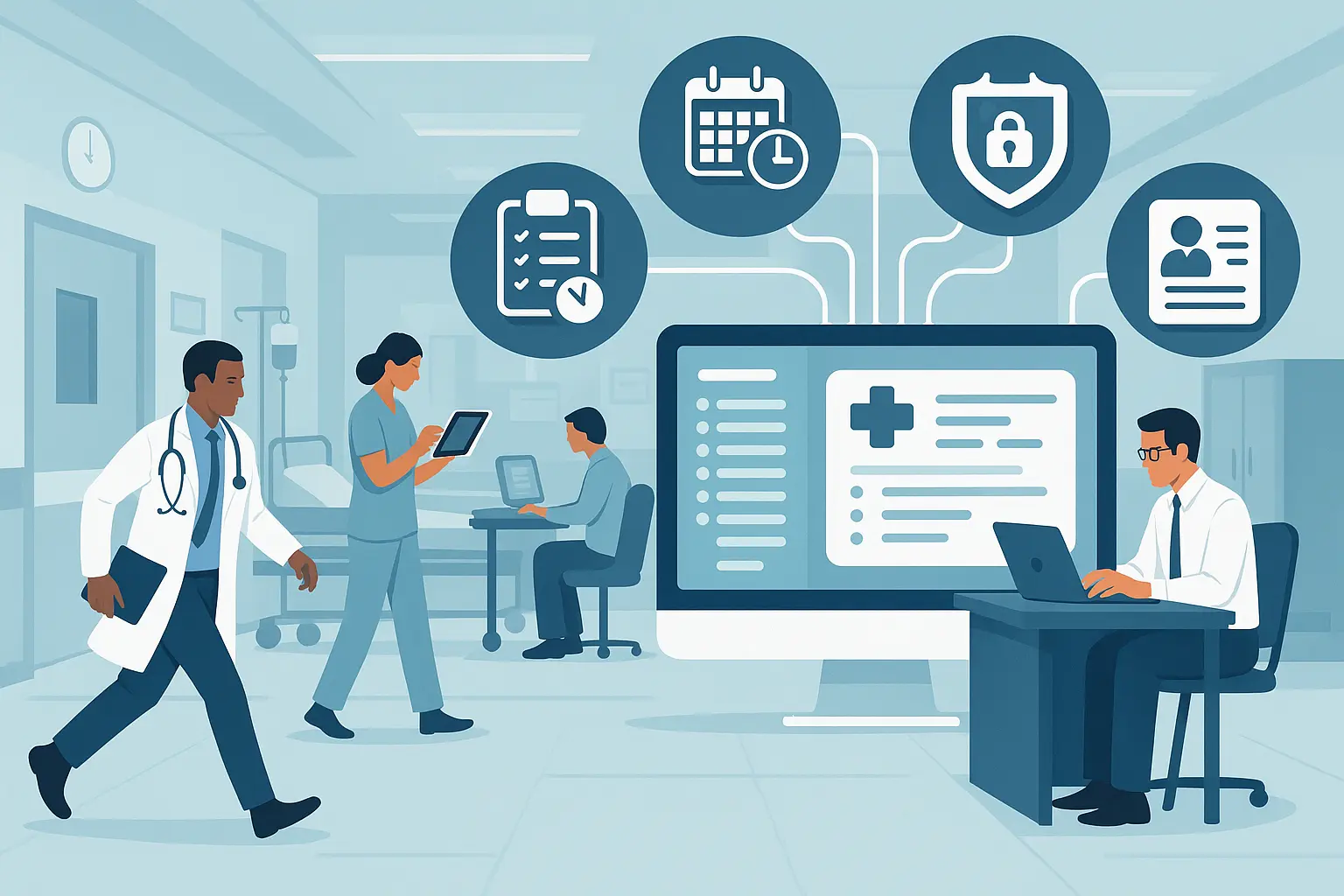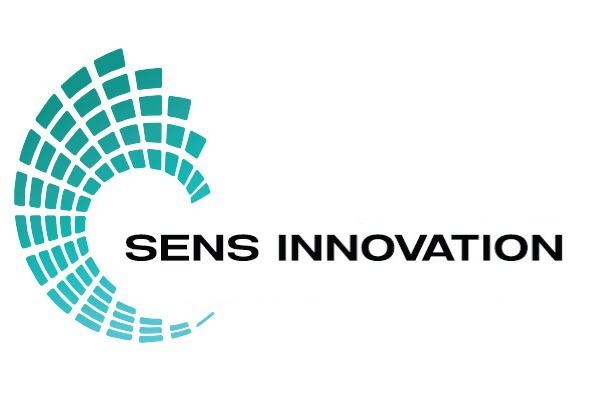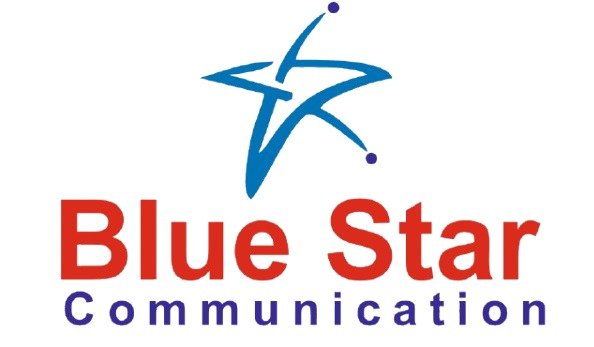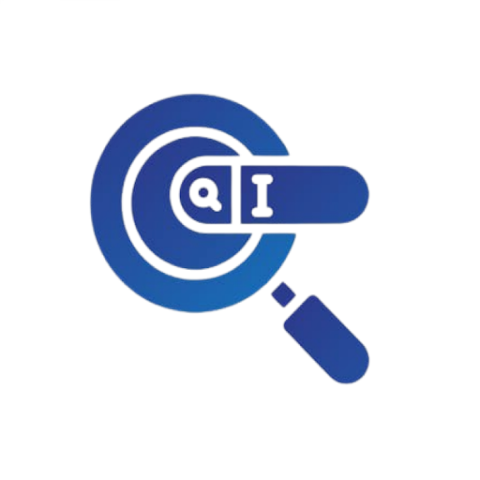
Optimizing Hospital Operations with Integrated Management Softwares
- Walk into any modern hospital today, and you'll witness an orchestra of moving parts. Doctors rushing between departments, nurses juggling patient care and records, administrators managing billing, inventory, and compliance. Amid this complexity, Integrated Hospital Management Software (HMS) has emerged as a quiet but powerful hero.
- The heartbeat of a hospital lies not only in its caregivers but also in the systems keeping everything synchronized. Let us discuss why this digital revolution is not a technology trend, but a health system disruptor.
- Technology, engineered correctly, reconnects humanity to healthcare. In an era where seconds count, every click saved, every process streamlined, and every piece of information obtained can be a matter of difference.
The Challenge: Hospitals Are Complex Ecosystems
- Hospitals are unlike other organizations. They are high-risk environments where seconds matter and where operations range across a wide matrix of functions: clinical care, diagnostics, pharmacy, inventory, finance, human resources, and regulatory compliance.
- Traditionally, stand-alone systems or even manual processes were employed in hospitals to tackle these operations. But stand-alone systems have a way of introducing inefficiencies:
- Duplicated data entry
- Communication failure among departments
- Delays in decision making
- Securities issues with data
- Lack of real-time visibility
- These issues do not only impact operations, but spread to other areas of patient care quality.
The Solution: Integrated Hospital Management Software
- Imagine a hospital's nervous system where every department, every piece of information, and every process are all linked to one system. That is what an integrated Hospital Management Software provides.
- HMS consolidates clinical, administrative, and financial information into one dashboard. From scheduling appointments, managing patient records, monitoring inventory, billing for services, even generating reports, everything is accomplished in one digital space.
Enhanced Patient Care Coordination
- Hospital stay of a patient may have several touch points: out-patient consultation, lab tests, imaging tests, pharmacy, in-patient stay, and discharge. With integrated software, each department views one patient record.
- This provides:
- Physicians with real-time lab and imaging results
- Nurses and specialists with exact tracking of treatment plans
- Patients with smooth treatment and no superfluous explanations or duplicated tests
- The payoff? Quicker diagnosis, fewer mistakes, and happier patients.
Successful Administrative Work
- Administrative staff are the backroom heroes. From booking appointments and staff rotas to tracking compliance and finances, their burden never slows. HMS streamlines them to deal with by automating:
- Automated appointment bookings and reminders cut no-shows
- HR modules track payrolls, shifts, and holidays with minimal hassle
- Inventory management systems alert when stocks are low, avoiding shortages
- This minimizes paperwork, removes redundancies, and gives administrators time to concentrate on strategic tasks.
Effective Billing and Financial Management
- Hospital billing can be complex, particularly with insurance claims, third-party administrators (TPAs), and diverse services provided across departments. Integrated HMS ensures that:
- All services are accurately captured and billed
- Insurance claims are paid on a timely basis with fewer rejections
- Real-time dashboards give insight into revenue cycles
- This not only streamlines cash flow, but also increases transparency to patients.
Data-Driven Decision Making
- In the healthcare universe, data is gold, if it's available and relevant. Integrated HMS platforms include analytics and reporting capabilities. Hospital leaders can monitor:
- Bed use rates
- Patient information
- Staff performance
- Revenue cycles
- Treatment outcomes
- These metrics support informed, forward-looking decision-making, e.g. re-deploying staff, streamlining services, or making new investments.
Regulatory Compliance and Data Security
- Hospitals must keep very detailed records for audit, legal protection, and regulation compliance. A good HMS guarantees:
- Automated capture of medical and administrative activity
- Role-based access to confidential data
- Data encryption and backup mechanisms for cybersecurity
- Standards compliance such as HIPAA or NABH
- This brings confidence to hospital administrators and avoids very high penalties or loss of reputation.
Scalability and Customization
- No two hospitals are the same. Whether you're a 20-bed clinic or a multi-specialty super-specialty center, a modern HMS is scalable and customizable to your needs.
- Modules can be added or removed, workflows adapted, and integrations made with existing equipment or third-party systems. This adaptability is particularly important as healthcare keeps changing at a fast pace.
Real-World Impact: A Glimpse into Transformation
- Consider the case of a mid-sized hospital that installed an integrated HMS.
- Prior to system upgrading:
- 30-40 minutes were utilized during patient admissions since it was a manual process of documentation
- The pharmacy experienced stock-outs on a regular basis because the inventory was replenished weekly
- Billing errors also led to patient complaints and delayed billing
- After installation:
- Admission time reduced to less than 10 minutes
- Inventory updated in real time, and stock-outs decreased by 80%
- Precision in billing increased, and claims that were processed 40% quicker
- It wasn't a more efficient operation that ensued, healthier finances, motivated employees, and happy patients.
Selecting the Appropriate HMS: What to Expect
- Purchasing an HMS is an informed strategy. Search for these characteristics:
- User-friendly interface: Your personnel shouldn't require an IT degree to manage it
- Cloud-based choices: Access from anywhere and instant updates
- Interoperability: Support for integration with lab equipment, PACS, or current software
- Mobile access: Physicians and staff on the go must access on their phones/tablets
- Training and support: A vendor who assists you deploy, not simply sell
- Not selecting the right vendor is not about features, it's about a partner who knows healthcare.
The Human Side of Technology
- Despite all the systems and software, it's easy to forget that there's a heart of a hospital: people. Integrated HMS doesn't substitute for human care, it releases caregivers from time-consuming bureaucratic paperwork so that they can do what they do best: heal.
- Physicians have fewer hours of paperwork and more time for clients. Nurses can adhere to treatment protocols without going in search of facts. Administrators have room to breathe to think and innovate.
- Technology, engineered correctly, reconnects humanity to healthcare.
Conclusion
- With the hospitals finding it difficult to deliver quality care in a steadily worsening environment, combined Hospital Management Software is no longer a luxury but a necessity.
- It casts a light on hospital operations, bringing accountability and efficiency and making a better experience for patients and personnel alike. In an era where seconds count, every click saved, every process streamlined, and every piece of information obtained can be a matter of difference.
- And that's healthcare - where technology meets compassion to create extraordinary outcomes.
Frequently Asked Questions
Hospital Management Software is an integrated digital platform that consolidates clinical, administrative, and financial operations into one unified system. It manages patient records, appointments, billing, inventory, staff scheduling, and compliance, creating seamless coordination across all hospital departments.
Integrated HMS provides real-time access to complete patient records across all departments, enabling faster diagnosis, reducing medical errors, eliminating duplicate tests, and ensuring coordinated treatment plans. This leads to better patient outcomes and enhanced care experience.
HMS streamlines administrative tasks through automated appointment booking, staff scheduling, inventory management, and billing processes. It reduces paperwork, eliminates redundancies, provides real-time analytics for decision-making, and ensures regulatory compliance while improving operational efficiency.
HMS automates billing processes, ensures accurate service capture, speeds up insurance claim processing, reduces billing errors, and provides real-time revenue cycle insights. This improves cash flow, reduces claim rejections, and increases financial transparency for both hospitals and patients.
Key factors include user-friendly interface, cloud-based accessibility, interoperability with existing systems, mobile access for staff, comprehensive training and support, scalability for future growth, and data security compliance with healthcare regulations like HIPAA.
Our Clients






































































































Together, let's create something great;
we hope to see you soon!
